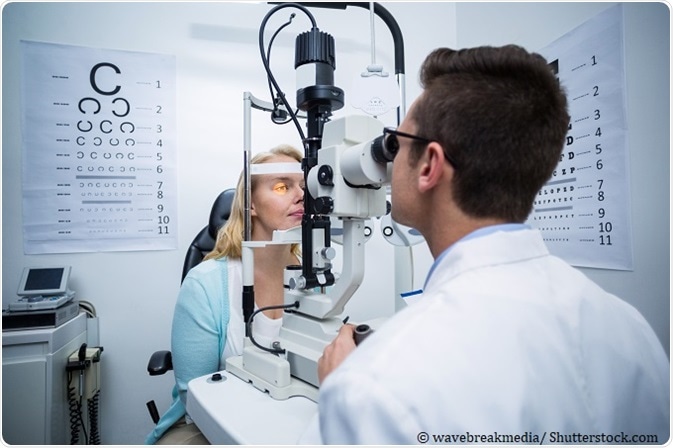Are you looking for specialized eye care in the field of optometry? Look no further than 50 Dollar Eye Guy, located in Pensacola, Florida. Our team of friendly and professional doctors, including Dr. Grace Tegenkamp, Dr. Joseph Tegenkamp, and Dr. Jeanine Spoors, are dedicated to providing exceptional customer service to all our patients. We take pride in our personalized care and strive to spend the necessary time with each individual to ensure a comfortable experience. Our focus is on comprehensive eye exams, a wide selection of fashionable eyewear, and the best possible vision care. Visit our Pensacola locations to meet our staff and make an appointment today.
General Optometry
General optometry refers to the practice of optometry that focuses on providing primary eye care services to patients. Optometrists in this specialization are the frontline healthcare providers for eye care and play a crucial role in maintaining and improving the visual health of individuals. They are trained to diagnose and manage common eye conditions, prescribe glasses and contact lenses, and perform routine eye exams.
Primary care optometry involves the provision of comprehensive eye care services, including preventive care, detection and management of eye diseases, and prescribing corrective lenses. Optometrists in this field are responsible for performing routine eye exams, which are essential in detecting early signs of eye problems and monitoring the overall vision health.
Routine eye exams are an integral part of maintaining good eye health. These exams involve a series of tests and evaluations to assess the visual acuity, refractive errors, and overall eye health of the patient. Optometrists use specialized instruments and techniques to examine the structures of the eye, including the cornea, lens, retina, and optic nerve. These exams help in early detection of eye conditions such as glaucoma, cataracts, and macular degeneration.
Prescribing glasses and contact lenses is another important aspect of optometry. Optometrists assess the patient’s refractive errors and prescribe the appropriate corrective lenses to improve visual acuity. They consider factors such as the patient’s age, lifestyle, and visual demands to determine the most suitable type of eyewear.
Diagnosing and managing common eye conditions is a key responsibility of optometrists. They are trained to identify and treat conditions such as dry eye syndrome, conjunctivitis, and eye allergies. Optometrists also play a crucial role in the management of chronic eye conditions, including glaucoma, diabetic retinopathy, and macular degeneration.
Overall, general optometry focuses on providing primary eye care services to individuals of all ages. Optometrists in this specialization are dedicated to promoting and preserving good vision and eye health.
Pediatric Optometry
Pediatric optometry is a specialized field within optometry that focuses on providing eye care services for children. It is crucial to prioritize pediatric eye care as early detection and management of eye problems can significantly impact a child’s development and quality of life.
Optometrists specializing in pediatric optometry undergo specialized training to effectively diagnose and manage eye conditions specific to children. They have in-depth knowledge of the unique visual needs and visual development stages of children, allowing them to provide specialized care.
Children can experience a range of eye problems, including refractive errors, amblyopia (lazy eye), strabismus (crossed eyes), and visual processing disorders. These conditions, if left untreated, can lead to long-term vision problems. Pediatric optometrists are trained to identify and treat these common eye issues, ensuring optimal visual development in children.
Vision screenings and comprehensive eye exams are essential components of pediatric eye care. Vision screenings are typically conducted at schools or pediatrician offices and serve as a preliminary assessment of a child’s visual acuity. However, they are not comprehensive and may miss underlying eye conditions. Comprehensive eye exams, performed by pediatric optometrists, evaluate various aspects of visual health, including refractive errors, eye teaming, eye movements, and overall eye health.
Treatment and management of pediatric eye conditions involve various methods, including prescribing glasses or contact lenses, patching therapy for amblyopia, and vision therapy to improve visual skills. Pediatric optometrists work closely with parents, educators, and other healthcare professionals to ensure that children receive the necessary care and support for their visual health.
In conclusion, pediatric optometry is a specialized field that emphasizes the importance of early detection and management of eye problems in children. With the help of pediatric optometrists, parents can ensure that their children’s visual health is well taken care of, setting them up for a lifetime of healthy vision.
Geriatric Optometry
Geriatric optometry focuses on meeting the specific eye care needs of elderly individuals. As people age, they are more susceptible to age-related eye conditions, making regular eye exams and specialized care essential for maintaining good visual health.
Elderly individuals have unique eye care needs due to factors such as age-related vision changes, chronic health conditions, and medication use. Geriatric optometrists are trained to address these specific needs and provide comprehensive eye care services for older adults.
Age-related eye conditions, such as age-related macular degeneration (AMD), cataracts, and glaucoma, are common among the elderly population. Geriatric optometrists play a crucial role in the early detection, management, and treatment of these conditions. Regular eye exams are vital for monitoring and identifying any changes in the eyes that may require medical intervention.
Management of age-related macular degeneration (AMD) is a key focus of geriatric optometry. AMD affects the central vision and can significantly impact an individual’s ability to read, drive, and perform daily activities. Geriatric optometrists work closely with other healthcare providers to develop personalized treatment plans, which may include medication, laser therapy, or surgical interventions.
Cataract evaluation and monitoring is another important aspect of geriatric optometry. Cataracts are a common condition characterized by clouding of the natural lens of the eye, leading to vision impairment. Geriatric optometrists assess the severity of cataracts and determine the appropriate timing for surgical intervention, collaborating with ophthalmologists to provide optimal care.
Low vision rehabilitation is a specialized area within geriatric optometry that focuses on enhancing the visual function and quality of life for older adults with severe vision loss. Geriatric optometrists work closely with low vision specialists to prescribe assistive devices, provide training in daily living skills, and offer counseling and support to individuals with low vision.
In summary, geriatric optometry addresses the specific eye care needs of elderly individuals, focusing on age-related eye conditions, personalized treatment plans, and low vision rehabilitation. By seeking specialized care from geriatric optometrists, older adults can maintain good visual health and maximize their independence and quality of life.

